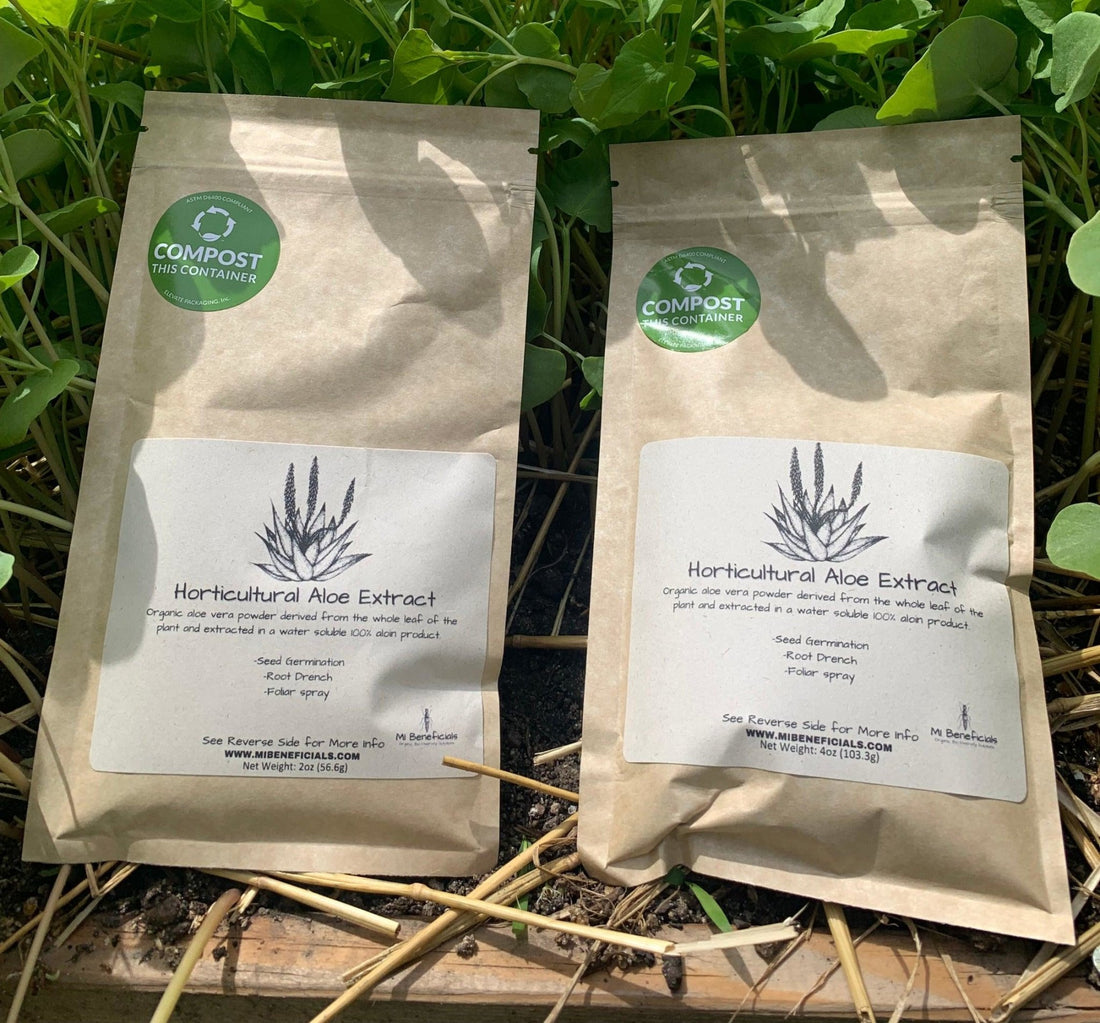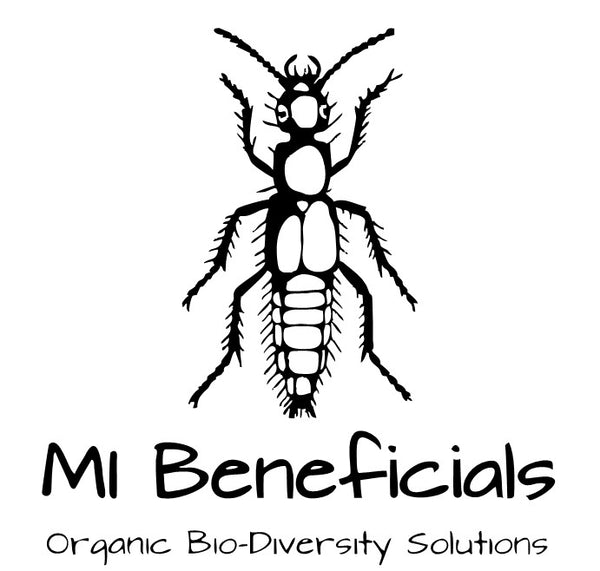
How to Use Aloe in the Garden (And Why You Absolutely Should)
Mark AshworthShare
Learn how to use Aloe Vera (Aloe barbadensis) extract powder to build plant resistances, reduce plant stress and improve root development.

It is more commonly known that Aloe Vera contains many human health benefits, but what is less known is the vast benefits it provides to its plant brothers and sisters. There are a couple options when it comes to Aloe Vera; you can either grow your own or you can get an Aloe Vera extract powder. Both have their benefits, but for us the Aloe Vera Extract is more attainable because we don't have the environment conducive for growing Aloe Vera on a large scale. We found this awesome guide which can help you if you're looking to grow your own and use it: here
If you're like us and in a cold climate, you can certainly purchase a few Aloe Vera house plants to harvest and use as necessary. We did just this for a few months, but we found that we were needing and using more of the plants than we could produce as they are slow growing in the winter time. If you're looking for another option, then aloe extract is likely the answer for you.
Our aloe powder is 100% aloin, water-soluble for ease and priced so that it can be used to as much as needed to maximize it's potential.
How Much Aloe Powder to Use
Use one teaspoon of our Aloe Vera powder per gallon of non-chlorinated water in both root drench and foliage applications.

How to Mix Your Aloe Powder
Our aloe powder is water-soluble, but it works the best when it is properly emulsified in both root drenches and foliage applications.
-
We use a diet-powder shaker ideally with a whisk ball and shake vigorously for a minute.
-
After emptying out the shaker, refill with more water and rinse out the remaining foamy solution.
-
Mix solution into the rest of your water and apply
When To Use Aloe Powder
Transplanting:
Aloe Vera is an excellent addition when moistening your soil during transplanting because it contains hormones that stimulate new growth and reduce transplant shock.
Root Drenches:
We recommend adding Aloe Vera to your water once every other week. Since Aloe Vera is an effective wetting agent, it should also be used when soil has gone hydrophobic to break the surface tension of the water and substrate.
Foliar Applications:
Since Aloe Vera contains saponins, it is an effective surfactant and can be added to your favorite IPM product to improve its covering and wetting ability. In addition, Aloe Vera contains micronutrients, lignins and enzymes which your plant can uptake through it's leaves.
Why Use Aloe Powder
-
Aloe Vera provides your plants with Salycylic acid
-
Salycylic acid aids plants in their systemic immuno-response against pathogens. (referred to as System Acquired Resistance or SAR). With an enhanced SAR, the plant has improved resistance to environmental stresses such as drought, cold, heat, excess humidity and heavy metal toxicity.
-
Aloe Vera contains lignins
-
Lignins have been shown to help improve plants uptake water and nutrients
-
Aloe Vera has been shown to reduce plant stress during transplant
-
Aloe Vera has saponins, which make it an effective wetting agent in root drenches and surfactant, or carrier in foliage applications.
How Often to Use Aloe Powder
During Veg Period - We recommend using Aloe Vera powder as part of your normal watering regiment once every other watering or every week during vegetative growth. This will ensure you're utilizing the all the benefits that Aloe Vera has to offer.
During Flower Period - We recommend starting to alternate coconut powder during the transition and flower period with Aloe Vera . What we mean is every other water use coconut powder, and every other water use Aloe Vera .
Aloe Vera: The Garden Must Have
At the end of the day, we are all looking for ways to provide our plants with the best inputs to get it to the finish line. Aloe is that tool because it provides your plant the building blocks for good health, strong immunity, reducing stresses and improving nutrient uptake. Healthier Plants = Better Quality
Read More About These Key Soil-Based Beneficial Insects
- Oribatid Mites (Oribatida)
- Rove Beetles (Dalotia coriaria)
- Stratiolaelaps scimitus (Hypoaspis miles)
- Springtails (Collembola)
- Red Wiggler Worms (Eisenia Fetida)
- Enchytraeidae (Pot Worms)
